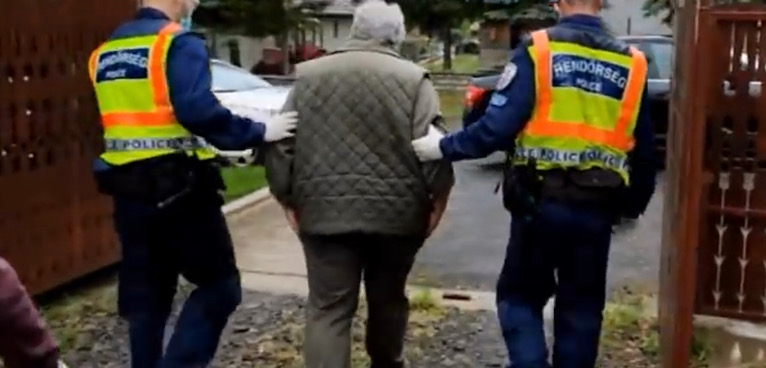One of the most troubling trends that has emerged amid the coronavirus is a rise in governments and police forces around the world arresting, interrogating, and intimidating people over what they post online.
This trend continued in Hungary when a 64-year-old man, András Kusinszki, was taken from his home by police at 6 am on May 12 and interrogated over one of his April 28 Facebook posts.
According to the police, this post alleged that Hungary’s leaders had deliberately timed the lifting of coronavirus lockdown measures to coincide with the peak of the pandemic and that this could lead to mass infections.
In the post, András also pleaded to “our dear dictator,” which appears to be a reference to the Hungarian Prime Minister Viktor Orbán, and asked him not to relax the shelter in place measures because he believed doing so would “send thousands to their deaths.”
The post finished with more comments that were presumably directed at Orbán: “You are a cruel tyrant, but remember, all dictators have failed so far.”

After being detained and interrogated, András was released in the afternoon and told he would not be charged.
András spoke with Hungarian news outlet 444 after he was released.
“[The police] asked questions like who exactly I was calling a dictator,” the man told 444. “I told them their task had achieved its result and would probably shut me up.”
He added: “When the regime changed [in 1990], we wouldn’t have imagined this. We were happy, we were smiling. Now, there’s nobody that would smile, and not because of the migrants and not because of the virus.”
Júlia Kaputa of the Hungarian Civil Liberties Union’s Political Freedom Project said András’ Facebook post was an expression of opinion and therefore not subject to criminal provisions against fear-mongering because the changes to the criminal code only refer to deliberate publication of falsehoods or distorted facts that inhibit authorities’ ability to defend against the pandemic.
The interrogation of András follows the Hungarian government being granted new powers under a Coronavirus Authorization Act which was introduced in March.
Under this act, the government can criminally prosecute people for spreading “false news which inhibits the ability of authorities to defend against the pandemic.”
The Hungarian police posted a statement about András’ detention on their website (Google Translate link) where they warned other social media users:
“The police constantly monitor the internet and are taking necessary measures, including removing objectionable content or, in more serious cases, initiating criminal proceedings.
Remember: everyone has an individual responsibility for what they share on social media, what content they continue to send.
A malicious or ill-considered post on the internet could constitute a crime.”
The police also embedded a video along with the statement which appeared to show András’ home being searched and him being taken to be interrogated by several police officers.
https://youtu.be/WPiaUHXUF1w
The police coming down hard on online posts while also using the internet to post threatening messages to citizens isn’t just happening in Hungary.
In the last month alone, police in the UK have urged residents to call the police if someone repeats conspiracy theories and posted an Orwellian tweet where they warned citizens that they would be “hiding in the shadows.”
Arrests for “fake news” are also on the rise around the world with over 300 people arrested in at least 38 countries for spreading what the authorities deem to be “false information.”













